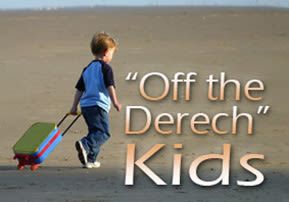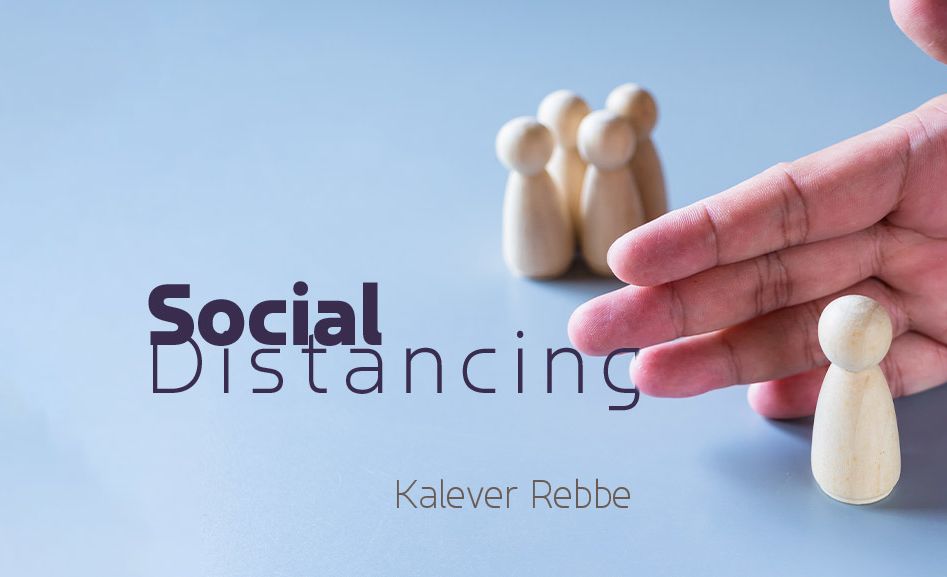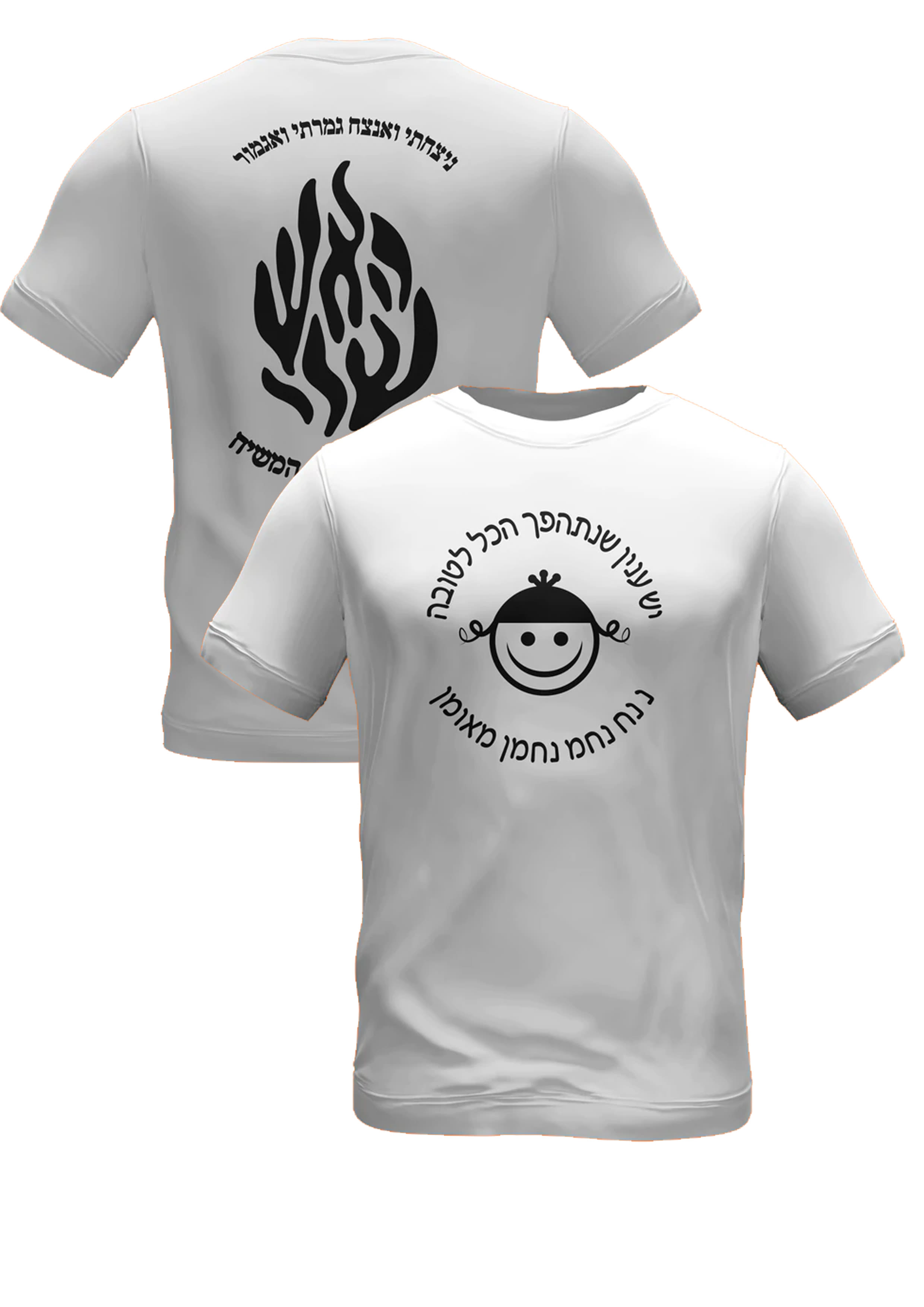
“Off the Derech” Kids
A veteran educator who has helped hundreds of rebellious youth become upright and responsible members of the community, addresses the painful problem of...

The following are some thoughts on what the religious community has labeled the “off the derech” youth (referred to in the article as “OTD”). I would like to start with a disclaimer. I am a Rebbe for such boys in Eretz Yisroel and have been dealing with this population for over ten years. I am far from an expert on the situation but wanted to share some general observations. These words are intended to encourage those that are going through or know someone who is going through this painful ordeal. May Hashem send us a full geulah (redemption) for all of us in general and each one of us in particular.
The term “off the derech youth” refers to young men and women who, although raised with Torah values in their homes and schools, have shunned the path. For a number of complicated reasons these young men and women both turn away from the practices of Torah Judaism and pick, to a varying degree, the sub-culture of Western society. The sub-culture they identify with often includes drugs and drinking, popular secular music, and socializing between boys and girls.
This is a general definition of the problem but it doesn’t reflect the emotional hardships and even trauma that the families, educators, and young people themselves go through in a rejection of Torah values and acceptance of a secular lifestyle. Parenthetically, the degree and depth and extent of both rejection of Torah values and the acceptance of secular social values vary greatly according to the individual and larger social group.
The main issues which are often raised by parents and educators are as follows:
1. How their children went off the path.
2. What was the parents’/educators’ part in causing the problem;
3. How do deal with the presently rebelling child;
4. How to maintain a sense of hope that the situation will improve.
Each topic deserves much discussion but there is one point that I think is the most important. The feeling of hopelessness and being overwhelmed makes a brighter future seem almost impossible. After working with many of these young men I can say that many came back to lead wonderfully productive and Torah-filled lives. After the tumultuous years of rebelling, a large majority of these young men and women finish their “off the derech” stage and settle down to working, raising a family, and leading a religious life close to the parents’ own lifestyle.
Everyone involved with the struggling/rebelling youth needs to understand that when a child goes off the derech he or she is lost. It is usually scary for the child to feel his or her life out of control, analogous to when a person is lost in the woods: Then, one of three possibilities can happen. They can find their way back to the same path they strayed from, they can stay lost, or they can forge a new path. The child at some point will usually want to get out of the forest. We need to be supportive (while setting limits) and help them find their way back or help them make their own special connection to Hashem. They may never take the path that we planned or previously hoped for them but they have the ability to develop their own special path.
In order to help them either return to the path or make their own special path, and especially to get them out of the forest, a few basics are essential. A lot of love. It might need to be tough love but the child must feel that you want the best for them. You must communicate in speech and action that you sincerely want their best, not that you’re embarrassed from the neighbors (which you are), not that you’re worried about the other children in the family (which you are), not that you’re worried about how this “little terror” might harm shidduchim possibilities (which you are), and not that you’re furious at him/her for making your life miserable (which you are). This is quite a task but you need to believe in the child and in yourself. Second, you need a support team of friends, professionals, and hopefully your spouse working together with you (often a serious issue by itself). There are a lot of qualified people in this field that can be located without too much difficulty Third, and almost needless to say, you need to daven (pray), daven, and daven again. Fourth, it is very worthwhile trying to find good influences for the OTD child, whether friends or adults (a Rebbe, a teacher, a neighbor, etc.) who will extend themselves to your child. Often the last person the child wants to hear from about how to improve their situation is the parent. Even if what they’re being told makes sense (or maybe because what they’re being told makes sense!) they can hear the same ideas much more easily from someone less emotionally involved.
There are many other issues to discuss but to reiterate there is hope for the child even if now it seems dark. A few personal anecdotes add some hope. I recently overheard two boys at our Yeshiva talking about getting married. The older of the two boys told the younger that if he wants to find a good shidduch (match) he should stick around the Yeshiva since our boys get the best shidduchim. The second boy expressed doubts until the first boy asked him if he had been at the annual Yeshiva dinner in the States. The second boy said no and the first boy responded that since he was there he saw it with his own eyes. I then came on to the scene and agreed with the observation since I had been at the dinner also! These are young men who forge a special path and have a unique and hard-earned connection with Hashem and His Torah. There are a lot of special young ladies who want such special young men (and vice-versa).
Another young man who was probably one of our most difficult students (even though he has a heart of gold) finally found a young lady who understood his rough exterior and wasn’t fooled about his special qualities. But since she was religious and he wasn’t she had to make some conditions about Shabbat, kashrut, and taharat hamishpacha (family purity). He finally agreed and it was truly a wonderful simcha for all of the Rebbeim who never imagined this “thick-skin” graduate accepting a Torah life.
Public enemy #1 is falling to ye’eush (despair) and depression. Every child has a Jewish neshama (soul) and is crying out for help. May we have the strength and patience, with Hashem’s help, to see our children lead productive lives and find their place in the Torah community, amen.
*Rabbi Dovid Charlop is a “Rosh Mativta”, one of the senior teachers at Yeshivat Neve Tzion in Telstone, Israel.
Listen to this 45 minute video by Rabbi Brody “On the Track, Off the Track”.












Tell us what you think!
Thank you for your comment!
It will be published after approval by the Editor.